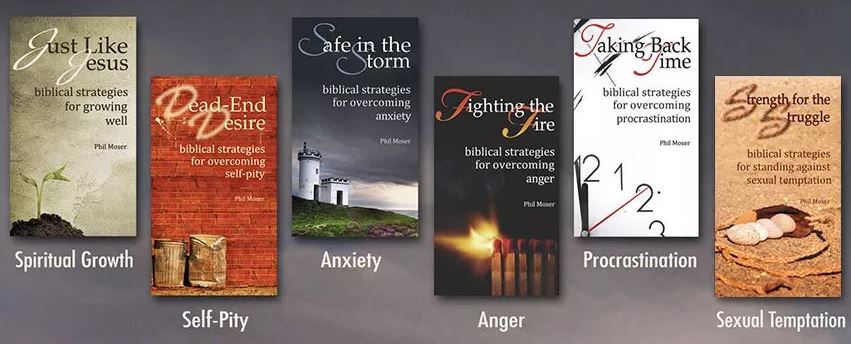5 truths to change the way you think about your work


With Amazon recently passing a trillion dollars in market capitalization, and with their dominance shuttering retail stores that historically seemed invulnerable, it’s easy to think business is all about the money. During so many changes, it’s important to remember that God said some things about work and business that will outlast the 24-hour news cycle. Here are five thoughts that may shake up your thinking a bit.
#1: WORK is a God-given assignment and not a cursed condition (Gen. 2:15; 3:18-19).
Here’s a simple but life changing truth: Genesis chapter 2 comes before chapter 3. In chapter 2 we read: “The LORD God took the man and put him in the garden of Eden to work it and keep it (Gen. 2:15). And, in chapter 3 we read, [God said] “Because you…have eaten of the tree of which I commanded you, ‘You shall not eat of it,’ cursed is the ground because of you; in pain you shall eat of it all the days of your life; thorns and thistles it shall bring forth for you; and you shall eat the plants of the field. By the sweat of your face you shall eat bread (Gen. 3:17-19).
When work is hard, it’s easy to think that work is a result of the fall. But God gave Adam work to do prior to his fall into sin. The weeds that grow faster than the crops remind us that it is the futility of work, not work itself that is a result of the fall. For Adam, work was his God-given assignment. It is for us as well. How might your attitude about your work change if you began to look at it in this way?
#2: TIME is the reminder that our opportunity to work has limitations (Ecc. 9:10).
Solomon, with renowned wisdom, reminds us:
Whatever you do, do well. For when you go to the grave, there will be no work or planning or knowledge or wisdom (Ecc. 9:10, NLT).
Each day brings new opportunities. But the opportunities we have today, may not be there tomorrow; time creates those limitations. That is why planning is so important. It’s the means that God gave us to make the most of our time limitations. It is also the reason procrastination is so dangerous. Writes American aphorist, Mason Cooley,
Procrastination makes easy things hard and hard things harder.
Whatever you put off until tomorrow will need to be done in addition to tomorrow’s tasks and unexpected interruptions.
#3: PLANNING is a means of accountability with your limited time (Prov. 21:5)
The writer of Proverbs reminds us,
The plans of the diligent lead surely to abundance, but everyone who is hasty comes only to poverty (Pro. 21:5).
Planning is a means of accountability with our time. The Hebrew word for planning meant to weave. The weaver doesn’t just throw colors randomly. He considers how the pieces relate to one another, and how they affect the overall picture. This is good planning. Both looking at how things relate to each other and keeping the end in view. A friend of mine recently gave me a 7-step process for planning. I just shared three of those steps with my college-age daughter, and she found them helpful.
- Vision: begin with the end in view. Imagine where you’d like to be several years out.
- Current state: give an honest evaluation of where you are now. What are your resources, gifts, and abilities? What are your weaknesses, inefficiencies, and shortcomings?
- Gap analysis: Considering your current state, what steps do you need to take now to reach your end goal? This sequences the action steps that enables you to accomplish your your vision.
#4: REST is the result of work well done but not the goal (Pro. 21:25).
As Westerners, we love our weekends and vacations. In fact, they often provide the stimulus to get us through the work week. It’s easy for the weekend to become a short-term goal, and retirement to become the long-term goal. But rest in the Bible is always the result of work well done, not the goal. Even God sets that example. Following six days of creation, we read,
On the seventh day God finished his work that he had done, and he rested on the seventh day from all his work that he had done (Gen.2:1).
Rest is the natural result of work well done, and it is also to be done at the end of the work not before. The Proverbs insightfully remind us: “The desire of the sluggard kills him, for his hands refuse to labor” (Pro. 21:25)
# 5: GIVING and SERVING are the rewards of working hard, not hoarding and spending (Eph. 4:28).
In a free society, it’s easy to assume that the rewards of our labor should be spent on ourselves as we please. But Ephesians provides a unique perspective. The apostle Paul writes,
Let the thief no longer steal, but rather let him labor, doing honest work with his own hands, so that he may have something to share with anyone in need” (Eph. 4:28).
While it is a personal decision, the purpose of “honest work with our hands” is so that we might have something to share with those in need. There is no sense of entitlement, no plan for personal spending, nor saving for the purpose of feeling more secure. There is an awareness, and a desire to share with those in need. Some of the happiest retirees I know are those who have found a way to use their time and wealth on others and not themselves. In the words of Albert Einstein,
A life directed chiefly toward the fulfillment of personal desires will sooner or later always lead to bitter disappointment.
I would only add what others have said before me: “True fulfillment only comes through helping others.”
The author’s unique insights can be purchased through Amazon. Click on the image below to connect.


One Comment on “5 truths to change the way you think about your work”
Dear Phil,
Thanks for your blog. Enjoy your material. I recently retired from the ministry and was introduced to your material at the Houston ACBC Trainging this spring. Your material has rekindled my interest in scripture memory. Memorizing the verses on Anxiety, Anger, Taking Back Time, and Strength for the Struggle has given me a greater desire to love God and to follow him.
Thanks, Roger